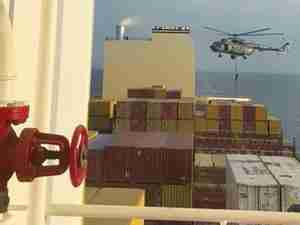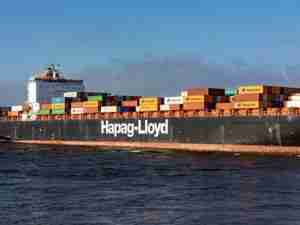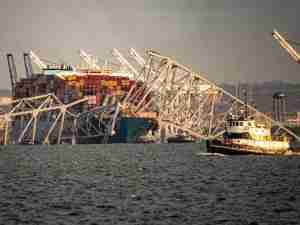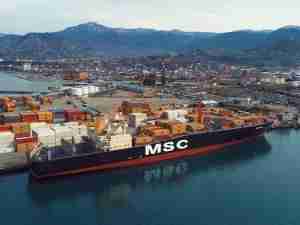Maersk cuts profit forecast, hit by weak shipping market
By: Reuters | Oct 23 2015 at 06:59 AM | Liner Shipping
COPENHAGEN - A.P. Moller-Maersk cut its 2015 profit forecast by 15 percent on Friday, blaming a slowdown in the container shipping market that suggests a weakening global economy.
The Danish conglomerate operates Maersk Line, the world’s largest container shipping company which transports roughly 20 percent of all goods on the busiest routes between Asia and Europe, making it a key bellwether of global trade.
Analysts said Maersk’s problems were also due to overcapacity in the shipping industry, which appears to be worse than previously anticipated and is driving down freight rates.
At 1040 GMT, A.P. Moller-Maersk shares were down 6.8 percent at 9,760 Danish crowns, compared with a 1.3 percent rise in Europe’s blue-chip share index.
“What we are seeing in general is a slowdown in global GDP growth. We have seen the IMF downgraded its figures and we are feeling it could be on a downward trend,” said Chief Executive Nils Andersen on a teleconference.
The International Monetary Fund (IMF) in July trimmed its forecast for global economic growth for this year to 3.3 percent from 3.5 percent previously, and economists are particularly concerned about slowing growth in China.
FREIGHT RATES
The Copenhagen-based shipping and oil group said it now expected its 2015 net profit excluding one-offs would be around $3.4 billion, some $600 million lower than previously forecast.
It said market conditions worldwide for Maersk Line had been weaker than anticipated.
Freight rates for transporting 20-foot containers from Asia to northern Europe, carrying anything from flat-screen TVs to sportswear, were $231 this week—widely considered a loss-making level.
Rates have been falling for six consecutive weeks and are at their lowest levels since June 19.
Maersk Line has managed to bring down unit costs in recent years by deploying bigger and more fuel efficient vessels.
But the mix of overcapacity, low demand and falling rates is depressing profits in the industry that carries up to 90 percent of global trade.
Global container vessels capacity is expected to grow by 8.2 percent this year and around 5 percent next year, according to shipping companies, outpacing the growth in demand for transportation of goods.
“Maersk Line has been hit harder than expected by low capacity utilisation due to the low volume growth in the global container transportation market”, said Sydbank analyst Jacob Pedersen, who has a buy rating on Maersk shares.









